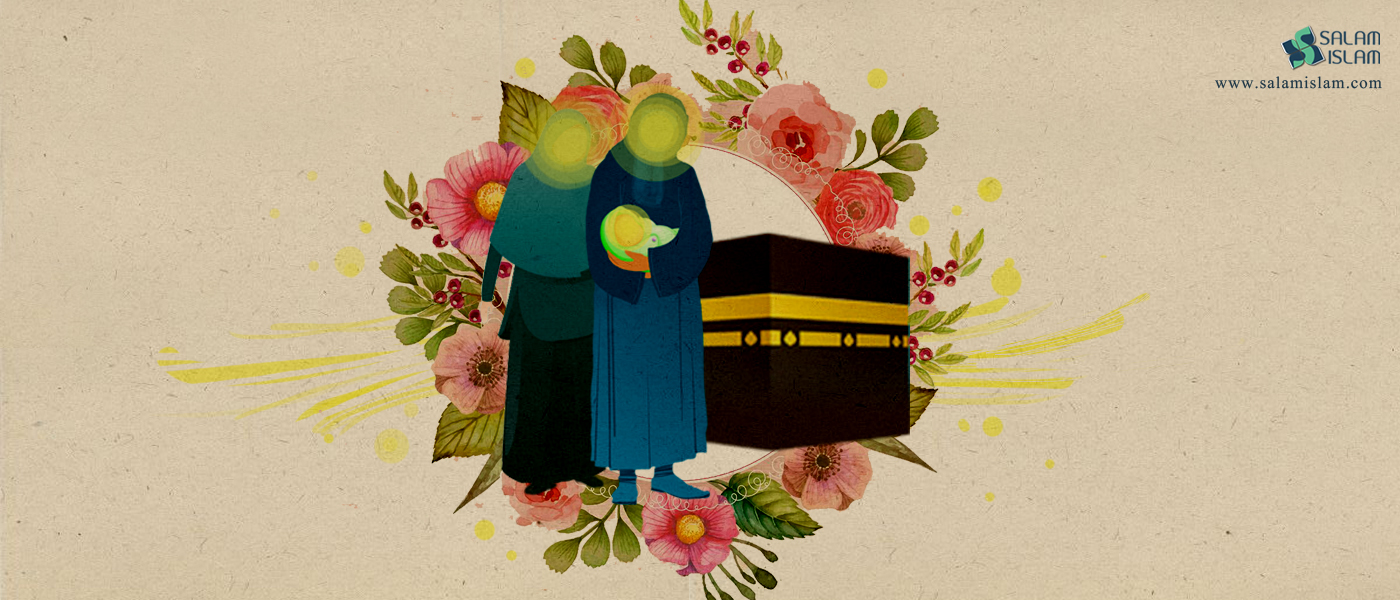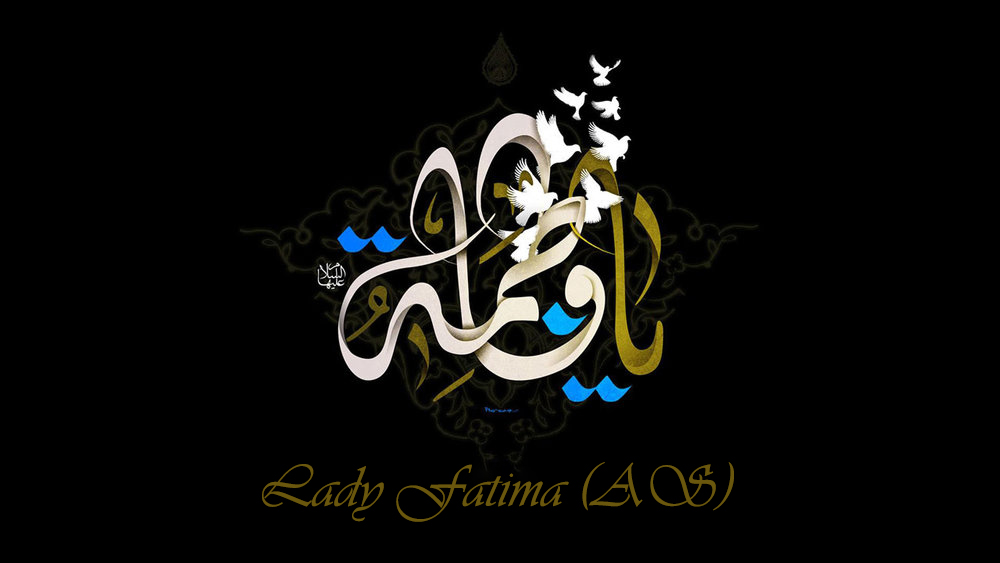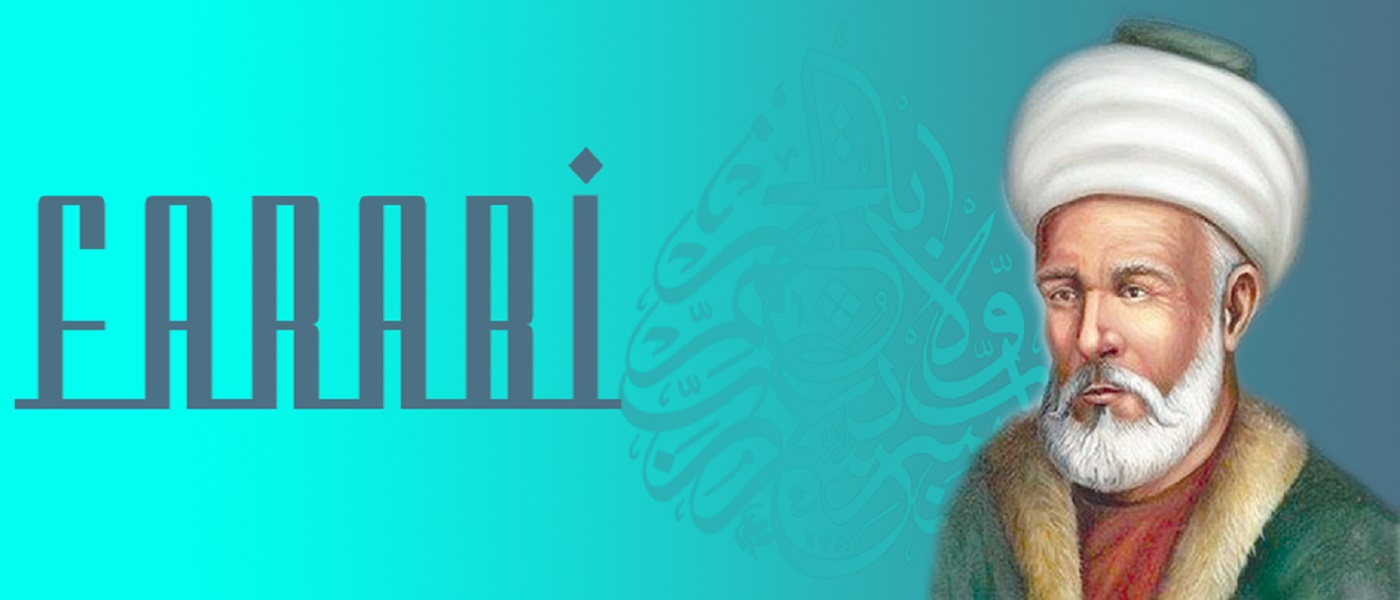

Prophet Muhammad (PBUH&HP) and Her Daughter, Lady Fatima (AS)
Before she was born, both Prophet Muhammad (PBUH&HP) and lady Khadija (AS) went to a spiritual retreat separately for forty days by the command of Allah. During those days, Prophet Muhammad (PBUH&HP) and Lady Khadija (AS) prayed Allah sincerely and prepared their pure soul to receive Allah's blessing, their beloved daughter. After those forty days of worship and servitude, angels brought Prophet Muhammad (PBUH&HP) an apple from heaven, and he broke his fast with those gifts from Allah. That night Lady Fatima (AS) was formed [1].
The father-daughter relationship between Prophet Muhammad (PBUH&HP) and Lady Fatima (AS) was one of a kind. Here, we are going to exemplify some instances of deep father-daughter love between the two and the formation of an ideal respectful relationship.
1. Respecting and Loving Lady Fatima (AS)
Prophet Muhammad (PBUH&HP) was always affectionate and caring toward Lady Fatima (AS). He used to kiss her throat every time she returned from a trip [2]. In response, she used to hug her dear father and kiss his forehead, between his eyes [3]. He didn't get to sleep before kissing her cheeks and praying for her, which reveal his deep respect and fatherly love toward her [4]. Aisha said she was the most similar person to Muhammad (PBUH&HP) in her speech. Whenever she came to see Prophet Muhammad (PBUH&HP), he used to take her hand and kiss her and sat next to her, and whenever Prophet Muhammad (PBUH&HP) went to meet Fatima (AS), she used to kiss his hand and sat next to him respectfully [5].
2. Lady Fatima (AS), The Mother of Her Father (Umme Abiha)
Lady Fatima (AS) lost her mother when she was five. The other five years of her life passed without a mother. As a daughter, she used to take care of her father. Whenever the unbelievers threw him stones and ashes, Fatima (AS) used to take care of him and do what a mother does for her child. That is why when Allah asked Prophet Muhammad (PBUH&HP) to call his wives Umol-Mumenin (Mother of the Believers), she asked him to grant her a title, too, Then Prophet Muhammad (PBUH&HP) called her Umme Abiha, the mother of her father [6].
3.The Event of the Cloak
Prophet Muhammad (PBUH&HP) was at home, resting, with his cloak over his body. Fatima (AS) came beside him with some food. Prophet Muhammad (PBUH&HP) asked her to call her husband, Ali (AS), and her two sons, Hassan (AS) and Hussain (AS). They started eating together when Allah inspired this verse to his Prophet:
"Stay in your houses and do not flaunt your finery like the former [days of pagan] ignorance. Maintain the prayer and pay the zakat, and obey Allah and His Apostle. Indeed, Allah desires to repel all impurity from you, O People of the Household, and purify you with a thorough purification." Quran (33:33)
Then Prophet Muhammad (PBUH&HP) covered the four of them with the remaining of his cloak and prayed:
O Allah, these are the people of my household and my special ones. Keep them pure and clean and take all evil away from them [7].
4. Attached, Even in the Other World
Prophet Muhammad (PBUH&HP) used to know about the difficulty of Lady Fatima's (AS) life after his death and the cruelty imposed on her and her family, and he cried for that a lot. Once when she was crying, he inspired her with this news: "You will join me in the other world soon after" [8] Lady Fatima (AS) was martyred 95 days after the death of his father!
References:
- Naseri, Muhammad (2011), Prophet Muhammad's Behavior with Fatima, Farhang-e Kothar, vol. 81.
- Bihar al-Invar, Vol.43, p. 6.
- ibid, p 40.
- ibid, p 42.
- Amini, Ibrahim The Model Woman of Islam, Fatima Pp108-109.
- Qa'emi, Ali In Fatima's School p.90.
- Tabatabai, Muhammad Hussain, Tafsir Al-Mizan Vol. 16, P 474
- Qomi, Abbas, Montahal Aamal p164.
Share This Article

14 Prophet Muhammad (PBUH&HP) Quotes about Lady Fatima (AS)
1. Loving Lady Fatima (AS)
Whoever loves my daughter, Fatima (AS), will be with me in heaven, and whoever holds grudges against her will reside in hell.
Bihar al-Anvar, vol.27, p.116.
2. The Best in Worshiping Allah
Fatima (AS) is the best companion in the path toward serving and worshiping Allah.
Bihar al-Anvar, vol.43, p.117.
3. The Dearest
Fatima (AS) is the dearest of people to me.
Al-Shaykh al-Saduq, Al-Amali, p.259.
4. Lady Fatima (AS), the Joy of Her Father's Heart
Fatima is of my flesh, who is the light of my eyes and the warmth of my heart.
Al-Shaykh al-Saduq, Al-Amali, p.486.
5. Injustice to Lady Fatima (AS)
Woe to whoever does wrong to my daughter, Fatima (AS), after my death.
Bihar al-Anvar, vol.73, p.354.
6. Paying a Visit to Lady Fatima (AS)
Visiting Fatima (AS) equals to visiting me.
Bihar al-Anvar, vol.43, p.58.
7. Part of Her Father, Prophet Muhammad (PBUH&HP)
O’ Fatima (AS)! You are part of me, and I part of you.
Bihar al-Anvar, vol.43, p.32.
8. Prophet Muhammad (PBUH&HP)'s Deep Love for Her
O’ Fatima (AS)! I’m ready to give my life for you!
Bihar al-Anvar, vol.22, p.490.
9. A Heavenly Angel
Fatima (AS) is an angel who smells like heaven.
Bihar al-Anvar, vol.87, p.112.
10. An Avid Worshipper
Verily, Allah has poured faith and belief into the veins of Fatima (AS); thus, she is consistent in worshiping Allah.
Bihar al-Anvar, vol.24, p.74.
11. Lady Fatima (AS)'s Marriage
I did not give permission for Fatima (AS)’s marriage until I received Allah’s command as to her marriage.
Al-Shaykh al-Saduq, Uyoun Akhbar Al-Ridha, vol.2, p.59.
12. Lady Fatima (AS)'s Status
My daughter’s light is of Allah, and her status is higher than heaven and earth.
Bihar al-Anvar, vol.15, p.10.
13. The Four Honored Women
Heaven looks forward to four women: Mary, the daughter of Joachim, Asyia, pharaoh’s wife, Khadija, Khuwailad’s daughter, and Fatima (AS), Muhammad (PBUH&HP)’s daughter.
Bihar al-Anvar, vol.43, p.53.
14. Asking Allah's Pardon for Others
O’ Fatima! I give you the glad tiding of holding a high status in Allah’s regard, which provides you with the power to ask pardon for other people.
Bihar al-Anvar, vol.76, p.359.
Read More

Al Farabi The Second Master
Had it not been for his coherent explanations on Aristotle’s Metaphysics, Avicenna would probably never have been able to understand it; he read Aristotle forty times, but it was just through the straightforward and comprehensive commentaries of Al Farabi that he finally realized Aristotle’s ideas on Metaphysics.
The great Muslim philosopher, logician, and cosmologist, Abu Nasr Muhammad ibn Muhammad Farabi, was born in 872 A.D. in Farab, Khurasan, to Iranian parents. He spent most of his life in Baghdad and from a very early youth started learning the teachings of Islam and the Holy Quran under the training of the best Islamic philosophers and scholars. He traveled to many countries, including Egypt and Syria. He died in 950 or 951 A.D. in Damascus, Syria.
In philosophy, he is considered to be the second in rank after Aristotle, and is called “the second teacher” and on some occasions “the second master” [1]. His wise and easy to understand explanations shed a clear light on the complex philosophy of Aristotle, to the point that many western philosophers owed their appreciation of “the first teacher”’s philosophy to Al-Farabi [2].
Moreover, he is the founder of Islamic philosophy. He genuinely believed in the existence of the first cause -God, Allah- and admitted the limits of human knowledge in understanding the nature of it [3].
In one of his most notable works “Al-Madina Al-Fadila” (The Virtuous City) which is basically about political philosophy, he argues that the favorable form of government is the one ruled by a prophet or Imam. Accordingly, the city of Medina when it was ruled by Prophet Muhammad (PBUH) was the ideal kind of society that would ultimately guide human beings to everlasting felicity both in this world and the world that is to come.
He also criticized those philosophers who do not utilize their knowledge for the benefit of their society. He compared the philosopher's role in society with a physician’s relation to the body; the body's health is affected by the 'balance of its humors just as the city is determined by the moral habits of its people. The philosopher's duty, he says, is to establish a ‘virtuous’ society by healing the souls of people, establishing justice, and guiding them towards 'true happiness' [4].
He was also a grandmaster of music; “He is said to have created musical compositions. To this day there are melodies in Anatolian music and rags in classical North Indian music attributed to him, sung and performed by masters of these musical genres”[5]. His famous book on music, Kitab al-musiqi al-Kabir ("The Great Book of Music"), is the study of the theory of Persian music and the philosophical principles of music, its cosmic qualities, and influence.
His other well-known book is called Kitab ihsa al-ulum ("On the Introduction of Knowledge"). It consists of eight parts, each dealing with one branch of science such as linguistics, logic, mathematics, astronomy, metaphysics, Islamic jurisprudence, Islamic science of dialectic and discourse, as well as politics[6].
Finally, Al-Farabi, one of the greatest Muslim philosophers, is a universal phenomenon whose innovative and sensible ideas marked a turning point in the history of philosophy. His philosophy was easy to understand and apply to real-life which is the essence of the sharia of Islam; a religion with rules that are highly compatible with human nature and if followed would bring satisfaction as well as peace.
References:
- Ian Richard Netton. “al-Farabi, Abu Nasr" .Islamic Philosophy from the Routledge Encyclopedia of Philosophy.
- F.W Zimmermann, Al-Farabi 's Commentary and Short Treatise on Aristotle 's De Interpretation, Oxford, 1981.
- Ian Richard Netton. Breaking with Athens: Alfarabi as Founder, Applications of Political Theory by Christopher A.Colmo".
- Charles Butterworth. Ethical and Political Philosophy in Adamson, P, and Taylor, R. The Cambridge Companion to Arabic Philosophy
- Hussein Nasr, Mehdi Aminrazavi. “An Anthology of Philosophy in Persia," Vol. 1: From Zoroaster to ‘Umar Khayyam”, I.B.
- Hamid Taleb Zadeh. Philosophy (Introduction to Islamic philosophy) the field of humanity, for pre-university students.
Read More

